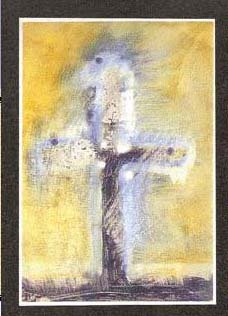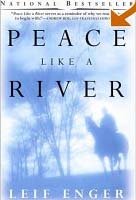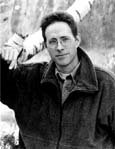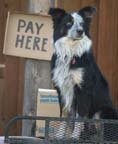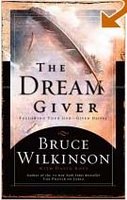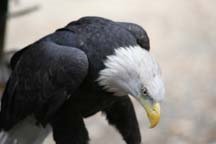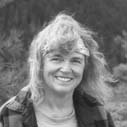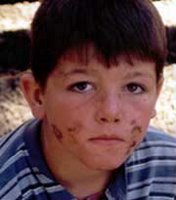Question Number One, Part 2
One of the most famous and prolific mystery/crime writers of all time, Georges Simenon, once said that when he started a novel he had no idea how it would end. And western writer Louis L'Amour
once told a story about how he was typing furiously in his study and his daughter came in and said "Daddy, why are you typing so fast?" He replied, without thinking, "I want to see how this turns out."
Trouble is, unearthing bones can certainly make things difficult for a first-time writer. I loved reading an interview with Nancy Means Wright who writes the entire book before making an outline to send her editor.
Boy howdy! That’s me.
On the other hand, one of my agents once gave me some good advice. “Go ahead and write the outline,” he said, “but simply look at it as a map. It’s not something concrete that you have to follow bit by bit. Like I said, it was good advice, but it still didn’t work for me. I just couldn’t get away from the outline after writing it, and it made for some very stiff writing.
In the end, I found my own form of writing, and it is different than just about anything else I’ve read.
1. Whether writing fiction or nonfiction, it’s important for me to have a title first. That’s right. First. Once I have a good title, then I know what my story is about. Sometimes, I may end up tweaking the title a bit afterward, but not often.
2. I write my opening paragraph entirely in my head before writing a word on paper or computer. I usually do this when I’m driving down the road, and I often say it outloud, until it’s just right. Just right means it flows easily from the tongue and is engaging, promising better things to come. I have a sense of place and character. If it’s nonfiction, then the character is me or the person I’m talking about.
Here is an example:
Fiction:
Often, the biggest battles a man must face are not on some foreign field—they are within the confines of his own soul—and no matter how many willing hands volunteer help, he must face the battle alone. Lucas Hain mulled over these thoughts as he broke the ice on the watering trough and headed for the creek. His horse, Rusty, followed behind lifting his hooves high and throwing snow in little blizzards beneath his tail. Luke listened to the sound of the gentle plop of hooves and thought of how horses were a constant in his life, as were the towering mountains, the herds of wapiti, and the high prairie where the seasons passed in spectacular wonder.
But they won’t mean a thing if I lose my wife.
As soon as I had this paragraph, I knew what my story was about. I knew the kind of person Luke was and the problems he was facing, and it had enough intrigue to make me want to know what was going to happen to him.
The next step was going to the computer and writing it down and then letting the story carry me along. It carried me through the end of the first chapter, and I was very satisfied with it.
I also had the name of the book by the book by the end of the first chapter. What I didn’t have was the names of the characters. I simply used Cat and myself until I had names for them. When my critique group read it, they all thought I had cancer! Ha! It had a lot of emotional pull.
The next thing I did was edit the first chapter. Then I wrote the final chapter! That’s right. The final chapter told me where my book was headed. Next, I made a list of some of the conflicts Luke would be facing, along with a list of supporting characters.
Now, here’s an interesting thing…After editing, I took that first chapter and offered it to the editor at Cascade Horseman as a stand alone article. He had never published fiction before, but he liked it! Soooooooo, I told him it was the first chapter of a novel, and asked if he would be interested in running it as sequels. He signed me up for 21 sequels on the spot.
Wow!
Trouble is, I hadn’t written any more chapters. In the end, I was very glad of those monthly deadlines. They kept the story moving. One funny thing that happened through this is that one time I left Luke hurt on a mountainside for two months. The edior called me and said that everyone in the office wanted to know what happened to Luke? I played mysterious, but the truth was, I was wanting to know what happened to Luke too! I never let on that I was writing the thing month by month.
21 months later, I had a completed novel of around 45,000 words. Every chapter was written from Luke’s point of view except one.
My next step was to expand the book into 100,000-word mainstream novel. This was the most fun part and the most difficult. I simply wrote scenes from other points of view, letting the reader know what was going on during the original gaps. This gave the story much more depth and interest.
I hit a wall at one point, trying to write a scene several times in several different ways, which alerted me to the fact that something was majorly wrong. I discovered that I had too many characters. So, my next step was combining like characters into one. I did that with two sets of characters. If they had similar personalities or traits, then they became one.
Then, I added a character who turned out to be major…Ghostdancer. He became very crucial to the story, which meant a lot of rewriting. And I added a prologue to help make him as important as he’s going to end up being.
Okay, I know Randy Ingermanson would say I should have used the snowflake design first, and I would have saved myself a lot of trouble. He’s probably right, and I may give that a good try next time, but this worked for me. And it was awesome to unearth the novel, very much like Steven King talked about in On Writing. It was as if the novel was there all along, just waiting for me to pull it out. A word of warning on Steven King, his book has quite a bit of crusty language in it, so if that bothers you, be warned.
When I finished the novel, I wrote my synopsis. May sound backward to you, but hey! It worked.
So the bottom line is, try a lot of different stuff and see what works for you. Skookum is the third novel I’ve written, but the first I believe is worthy of publication. I like the story. That’s important.
If you’re writing fiction, then it’s important that you are writing a story that you can live with for 2 to 4 years, especially if it’s your first. It may take that long to write.
I enjoyed Skookum all along the way and love the characters so much that I’m writing a sequel. I know authors who can’t stand to read their story one more time after a year or two. So, make sure you like the story and the characters and that it has a lot of appeal to you before you tackle such a big project.
In Skookum, I’m talking about a way of life that is important to me. These are the people I know, the land I love, the problems we face on a daily basis. It came after hours of interviews with oldtimers and years of spending time with wranglers and outdoorsmen in the wilderness. A lot of it came from the stories my father told me as I was growing up. Although it’s fiction, almost every scene in it happened to someone. I just made them all happen to Luke!
If it sounds like I’m passionate about this story, it’s because I am. Passion is a huge driving force behind a good novel.
Tomorrow I’ll give you an example of a couple of first paragraphs that got me started on nonfiction projects, then we’ll wrap up Question Number One.
See ya here!



